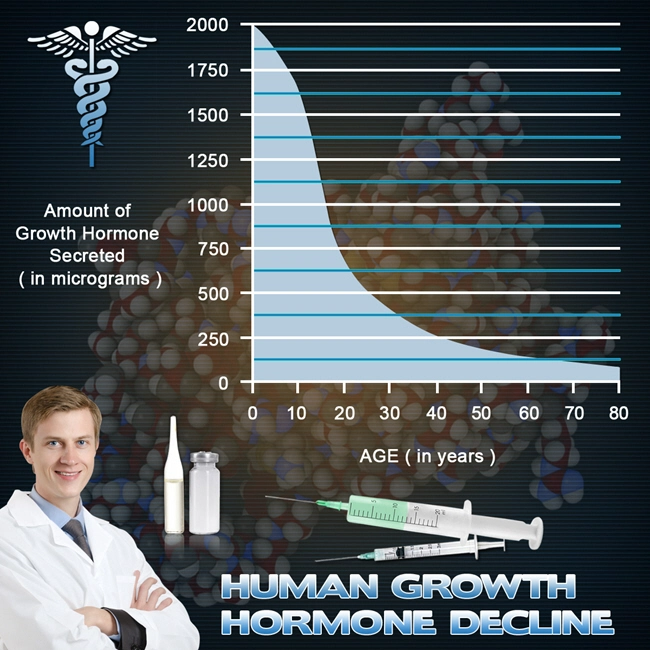
Introduction to GLP-1 and Semaglutide
The glucagon-like peptide-1 (GLP-1) receptor has emerged as a pivotal target in the management of type 2 diabetes and obesity, with semaglutide standing out as a leading therapeutic agent. Semaglutide, a GLP-1 receptor agonist, has garnered significant attention due to its efficacy in glycemic control and weight management. This article aims to elucidate the mechanisms by which semaglutide exerts its effects, providing American males with a comprehensive understanding of this innovative treatment.
The Role of GLP-1 in the Body
GLP-1 is an incretin hormone secreted by the L-cells of the intestine in response to nutrient ingestion. It plays a crucial role in regulating blood glucose levels by stimulating insulin secretion in a glucose-dependent manner. Additionally, GLP-1 inhibits glucagon release, slows gastric emptying, and promotes satiety, all of which contribute to its therapeutic potential in diabetes and obesity management.
Mechanism of Action of Semaglutide
Semaglutide mimics the action of endogenous GLP-1 by binding to and activating the GLP-1 receptor. This activation leads to enhanced insulin secretion from pancreatic beta cells, particularly when blood glucose levels are elevated. By doing so, semaglutide helps maintain blood glucose within the normal range, reducing the risk of hyperglycemia.
Moreover, semaglutide's ability to suppress glucagon secretion from pancreatic alpha cells further aids in glycemic control. By reducing glucagon levels, semaglutide prevents the liver from releasing excess glucose into the bloodstream, thereby mitigating the risk of postprandial glucose spikes.
Impact on Gastric Emptying and Appetite
One of the unique features of semaglutide is its effect on gastric emptying. By slowing the rate at which food leaves the stomach, semaglutide prolongs the feeling of fullness, which can lead to reduced caloric intake. This mechanism is particularly beneficial for American males struggling with weight management, as it helps curb appetite and promote weight loss.
Furthermore, semaglutide acts on the central nervous system to enhance feelings of satiety. By engaging with areas of the brain responsible for appetite regulation, semaglutide helps reduce hunger and food cravings, making it easier for individuals to adhere to a healthy diet.
Clinical Efficacy and Safety Profile
Clinical trials have demonstrated semaglutide's robust efficacy in improving glycemic control and facilitating weight loss. In the SUSTAIN and STEP trials, semaglutide was shown to significantly reduce HbA1c levels and body weight compared to placebo and other antidiabetic medications. These findings underscore semaglutide's potential as a cornerstone therapy for American males with type 2 diabetes and obesity.
Regarding safety, semaglutide has been well-tolerated in clinical studies, with the most common side effects being gastrointestinal in nature, such as nausea and diarrhea. These side effects are typically mild to moderate and tend to diminish over time. As with any medication, it is essential for patients to discuss potential risks and benefits with their healthcare provider.
Conclusion: The Future of GLP-1 Receptor Agonism
The advent of semaglutide represents a significant advancement in the treatment of type 2 diabetes and obesity. By harnessing the power of the GLP-1 receptor, semaglutide offers American males a multifaceted approach to managing these chronic conditions. As research continues to unravel the intricacies of GLP-1 receptor agonism, semaglutide is poised to play an increasingly vital role in improving health outcomes and quality of life for millions of individuals.
Contact Us Today For A Free Consultation
Dear Patient,
Once you have completing the above contact form, for security purposes and confirmation, please confirm your information by calling us.
Please call now: 1-800-380-5339.
Welcoming You To Our Clinic, Professor Tom Henderson.

- The Semaglutide Revelation: Shaping the Future of Diabetes and Weight Management [Last Updated On: February 25th, 2025] [Originally Added On: February 25th, 2025]
- The Evolution of Semaglutide: A Journey from Laboratory Observations to Life-Changing Medicine [Last Updated On: February 26th, 2025] [Originally Added On: February 26th, 2025]
- Deciphering the Dynamics of Semaglutide: An Unraveled Exploration into GLP-1 Science [Last Updated On: February 27th, 2025] [Originally Added On: February 27th, 2025]
- Grasping the Metabolic Majesty: Semaglutide's Profound Influence Beyond Blood Sugar Levels [Last Updated On: February 28th, 2025] [Originally Added On: February 28th, 2025]
- Emerging Innovations: Unveiling Semaglutide as a Superior GLP-1 Agonist in 2024 [Last Updated On: February 28th, 2025] [Originally Added On: February 28th, 2025]
- Revolutionizing Diabetes Management: The Pioneering Role of Semaglutide [Last Updated On: March 1st, 2025] [Originally Added On: March 1st, 2025]
- Reimagining Diabetes Management: Semaglutide's Revolutionary Impact on Patient Lives [Last Updated On: March 2nd, 2025] [Originally Added On: March 2nd, 2025]
- Exploring Semaglutide: Its Role in Diabetes Management and Weight Loss Efficacy [Last Updated On: March 3rd, 2025] [Originally Added On: March 3rd, 2025]
- Semaglutide: Transforming Metabolic Health in American Males [Last Updated On: March 4th, 2025] [Originally Added On: March 4th, 2025]
- Semaglutide's Role in Preserving Beta-Cell Function for American Males with Type 2 Diabetes [Last Updated On: March 4th, 2025] [Originally Added On: March 4th, 2025]
- Semaglutide: Advancing Cardiovascular and Diabetes Management in American Males [Last Updated On: March 5th, 2025] [Originally Added On: March 5th, 2025]
- Semaglutide: Transforming Treatment for Diabetes and Obesity in American Males [Last Updated On: March 6th, 2025] [Originally Added On: March 6th, 2025]
- Optimizing Semaglutide Dosage for Diabetes and Weight Management: A Comprehensive Guide [Last Updated On: March 7th, 2025] [Originally Added On: March 7th, 2025]
- Semaglutide: Benefits, Risks, and Guidelines for American Men's Diabetes and Weight Management [Last Updated On: March 8th, 2025] [Originally Added On: March 8th, 2025]
- Semaglutide: Groundbreaking Tool in Obesity Management for American Men [Last Updated On: March 9th, 2025] [Originally Added On: March 9th, 2025]
- The Economic Landscape of Semaglutide: Analyzing Cost, Insurance Coverage, and Overall Value for American Males [Last Updated On: March 12th, 2025] [Originally Added On: March 12th, 2025]
- Real-World Applications of Semaglutide: Insights from Clinical Practice for American Males [Last Updated On: March 13th, 2025] [Originally Added On: March 13th, 2025]
- Unlocking the Potential of Semaglutide in Managing Metabolic Syndrome: A Comprehensive Guide for American Males [Last Updated On: March 15th, 2025] [Originally Added On: March 15th, 2025]
- Semaglutide: A Comprehensive Guide for American Males on Diabetes and Obesity Management [Last Updated On: March 16th, 2025] [Originally Added On: March 16th, 2025]
- Unlocking the Full Potential of Semaglutide: Expert Strategies for American Males [Last Updated On: March 16th, 2025] [Originally Added On: March 16th, 2025]
- Semaglutide: A Comprehensive Guide for American Males Managing Diabetes and Obesity [Last Updated On: March 17th, 2025] [Originally Added On: March 17th, 2025]
- Semaglutide: Transforming Lives of American Men Through Weight Loss Success Stories [Last Updated On: March 18th, 2025] [Originally Added On: March 18th, 2025]
- Semaglutide and Beyond: Innovations in GLP-1 Therapy for American Males [Last Updated On: March 18th, 2025] [Originally Added On: March 18th, 2025]
- Semaglutide: Lowering HbA1c and Aiding Weight Loss in Type 2 Diabetes Management [Last Updated On: March 18th, 2025] [Originally Added On: March 18th, 2025]
- Semaglutide: A New Hope for Appetite Control and Weight Management in American Men [Last Updated On: March 18th, 2025] [Originally Added On: March 18th, 2025]
- Semaglutide: A Comprehensive Guide for American Males on Diabetes and Obesity Management [Last Updated On: March 19th, 2025] [Originally Added On: March 19th, 2025]
- Semaglutide's Anti-Inflammatory Benefits: A New Hope for American Males [Last Updated On: March 20th, 2025] [Originally Added On: March 20th, 2025]
- Semaglutide: A Dual Benefit for Diabetes and Weight Management in American Men [Last Updated On: March 20th, 2025] [Originally Added On: March 20th, 2025]
- Semaglutide's Impact on Satiety Hormones for Weight Management in American Males [Last Updated On: March 20th, 2025] [Originally Added On: March 20th, 2025]
- Semaglutide: Revolutionizing Weight and Metabolic Health in American Men [Last Updated On: March 21st, 2025] [Originally Added On: March 21st, 2025]
- Personalizing Semaglutide Therapy for American Males: Dosage, Monitoring, and Lifestyle Integration [Last Updated On: March 21st, 2025] [Originally Added On: March 21st, 2025]
- Semaglutide: A Promising Treatment for NAFLD in American Men [Last Updated On: March 22nd, 2025] [Originally Added On: March 22nd, 2025]
- Semaglutide and Insulin: Complementary vs. Competitive Roles in Diabetes Management for American Males [Last Updated On: March 22nd, 2025] [Originally Added On: March 22nd, 2025]
- Semaglutide: Enhancing Lipid Profiles and Cardiovascular Health in American Men [Last Updated On: March 22nd, 2025] [Originally Added On: March 22nd, 2025]
- Semaglutide's Impact on Kidney Health in American Males with Type 2 Diabetes [Last Updated On: March 22nd, 2025] [Originally Added On: March 22nd, 2025]
- Semaglutide Side Effects: Management Strategies for American Males [Last Updated On: March 22nd, 2025] [Originally Added On: March 22nd, 2025]
- Semaglutide: A Comprehensive Solution for Diabetes Management in American Men [Last Updated On: March 22nd, 2025] [Originally Added On: March 22nd, 2025]
- Semaglutide: Revolutionizing Diabetes and Obesity Management for American Males [Last Updated On: March 23rd, 2025] [Originally Added On: March 23rd, 2025]
- Semaglutide Delivery Innovations: From Oral to Implantable Solutions for American Males [Last Updated On: March 23rd, 2025] [Originally Added On: March 23rd, 2025]
- Semaglutide: A Breakthrough in Weight Loss for American Men [Last Updated On: March 23rd, 2025] [Originally Added On: March 23rd, 2025]
- Semaglutide Enhances Sleep Quality in Diabetic Men: Mechanisms and Clinical Evidence [Last Updated On: March 24th, 2025] [Originally Added On: March 24th, 2025]
- Semaglutide: A Comprehensive Solution for Diabetes, Weight Loss, and Cardiovascular Health in American Males [Last Updated On: March 24th, 2025] [Originally Added On: March 24th, 2025]
- Semaglutide: Enhancing Life Quality for American Men with Diabetes and Obesity [Last Updated On: March 24th, 2025] [Originally Added On: March 24th, 2025]
- Semaglutide: A Breakthrough in Obesity Management for American Males [Last Updated On: March 25th, 2025] [Originally Added On: March 25th, 2025]
- Genetics Influence Semaglutide Response in American Males: Personalized Treatment Insights [Last Updated On: March 25th, 2025] [Originally Added On: March 25th, 2025]
- Optimizing Semaglutide Therapy: A Dietary Guide for American Men [Last Updated On: March 25th, 2025] [Originally Added On: March 25th, 2025]
- Semaglutide: Revolutionizing Health Management for American Males [Last Updated On: March 25th, 2025] [Originally Added On: March 25th, 2025]
- Semaglutide Therapy for American Males: Steps from Consultation to Long-Term Management [Last Updated On: March 25th, 2025] [Originally Added On: March 25th, 2025]
- Semaglutide's Role in Managing Diabetes and Obesity in American Males Across Specialties [Last Updated On: March 25th, 2025] [Originally Added On: March 25th, 2025]
- Semaglutide: Opportunities and Challenges in Adolescent Obesity Management for American Males [Last Updated On: March 25th, 2025] [Originally Added On: March 25th, 2025]
- Semaglutide: Discussing Diabetes and Weight Loss Treatment with Your Doctor [Last Updated On: March 25th, 2025] [Originally Added On: March 25th, 2025]
- Semaglutide's Real-World Efficacy and Safety in American Males: A Comprehensive Analysis [Last Updated On: March 26th, 2025] [Originally Added On: March 26th, 2025]
- Semaglutide: Revolutionizing Male Health in Endocrinology and Beyond [Last Updated On: March 26th, 2025] [Originally Added On: March 26th, 2025]
- Telemedicine Integration of Semaglutide Enhances Diabetes Management for American Males [Last Updated On: March 26th, 2025] [Originally Added On: March 26th, 2025]
- Semaglutide: A Dual-Action Solution for Diabetes and Obesity in American Men [Last Updated On: March 26th, 2025] [Originally Added On: March 26th, 2025]
- Semaglutide's Impact on Inflammation: Benefits for American Males' Health [Last Updated On: March 26th, 2025] [Originally Added On: March 26th, 2025]
- Semaglutide: A New Hope for Aging American Males' Health Challenges [Last Updated On: March 26th, 2025] [Originally Added On: March 26th, 2025]
- Semaglutide: Enhancing Energy and Vitality in American Men [Last Updated On: March 26th, 2025] [Originally Added On: March 26th, 2025]
- Semaglutide and Exercise: Synergistic Health Benefits for American Males [Last Updated On: March 26th, 2025] [Originally Added On: March 26th, 2025]
- Semaglutide: Clinical Insights for American Males on Diabetes and Obesity Management [Last Updated On: March 27th, 2025] [Originally Added On: March 27th, 2025]
- Semaglutide's Anti-Inflammatory Potential: A New Frontier in Men's Health [Last Updated On: March 27th, 2025] [Originally Added On: March 27th, 2025]
- Semaglutide Adherence Strategies for American Men: Enhancing Diabetes and Weight Management [Last Updated On: March 27th, 2025] [Originally Added On: March 27th, 2025]
- Semaglutide: Reducing Cardiovascular Risks in American Males with Type 2 Diabetes [Last Updated On: March 28th, 2025] [Originally Added On: March 28th, 2025]
- Semaglutide's Impact on Mental Health in American Men: Diabetes, Obesity, and Beyond [Last Updated On: March 28th, 2025] [Originally Added On: March 28th, 2025]
- Semaglutide's Long-Term Safety for American Males: Diabetes and Obesity Management [Last Updated On: March 29th, 2025] [Originally Added On: March 29th, 2025]
- Semaglutide's Role in Managing Postprandial Glucose in American Males with Diabetes [Last Updated On: March 30th, 2025] [Originally Added On: March 30th, 2025]
- Maximizing Semaglutide Benefits: Dosage, Diet, Exercise, and Holistic Support for American Males [Last Updated On: March 30th, 2025] [Originally Added On: March 30th, 2025]
- Semaglutide: Revolutionizing Obesity and Diabetes Treatment in American Men [Last Updated On: March 30th, 2025] [Originally Added On: March 30th, 2025]
- Semaglutide vs. Other Medications: Weight Loss Options for American Males [Last Updated On: March 31st, 2025] [Originally Added On: March 31st, 2025]









